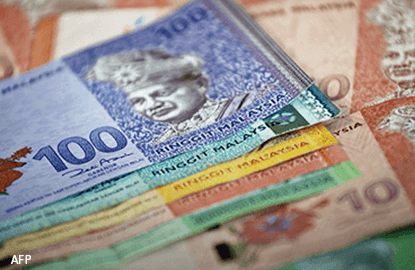
KUALA LUMPUR (Dec 14): At current levels, the ringgit could have priced in the possibility of a US rate hike this week, as the currency contends with a weaker yuan and crude oil prices.
Economists said the US' potential rate hike was expected to have marginal impact on the ringgit, which depreciated to 4.3195 against the US dollar at 1:56pm.
US policy makers will meet tomorrow (Dec 15) and Wednesday (Dec 16) to decide on the country's monetary policy. A US rate hike does not bode well for emerging Asian markets like Malaysia, as investors turn their attention to US dollar-denominated assets.
A US rate hike will be the country's first increase in about seven years from near-zero levels.
In Malaysia today, an economist from MIDF Amanah Investment Bank Bhd told theedgemarkets.com via email that in the long term, it was important to note how the US economy and financial markets would fare post lift-off.
“That will eventually affect the pace of the subsequent rate hikes. In the event that there are signs of overheating in the US economy, the US Federal (Reserve policymakers) may decide to conduct a faster pace of monetary policy tightening, leading to further capital outflow from the emerging markets and vice versa.
“For now, we are not expecting that there will be much change in the market post-liftoff, and the market should start to stabilise by the middle of next year,” he said.
The ringgit's strength also tracks prices of crude oil, which forms a major component of the Malaysian economy and government revenue.
Crude oil prices at below US$40 a barrel due to oversupply, have raised concerns on the ringgit. The economist said the ringgit possessed a higher correlation with the commodity's price.
“In the short term, we may be seeing further downward pressure on the commodity index, particularly as it is expected that the current winter is likely to become a warm winter, due to the El Nino this year," he said.
Today, the spotlight is on also the yuan. Bloomberg reported that the ringgit declined to a three-week low, following China’s introduction of an index tracking the yuan against a basket of currencies.
It was reported that the move might put pressure on Asian currencies to depreciate, as policy makers bid to keep exports competitive with the world’s second-biggest economy, by allowing their exchange rates to weaken and as a looming US interest-rate increase strengthens the greenback.
In Malaysia, the economist told theedgemarkets.com that China's move was not unexpected, since the yuan joined the International Monetary Fund's Special Drawing Rights (SDR) basket.
“We have been expecting this decision by the Peoples’ Bank of China, since we first confirmed that the yuan is likely to be included in the SDR basket, as currently it is weighted too much to the dollar, leading to an overvaluation of its currency.
“However, if anything, a weaker yuan should be beneficial for Malaysia, as it will benefit China’s economy and eventually lead to a stronger global trade activity,” he said.